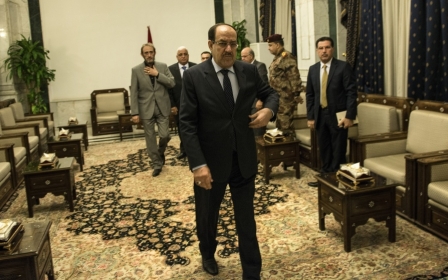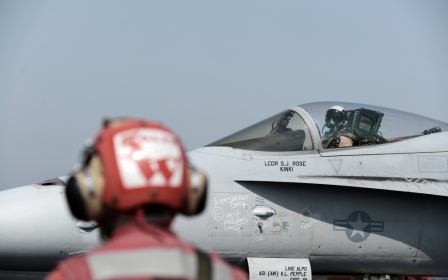Abadi calls for Iraqi unity after Maliki concedes defeat

The Iraqi politician tasked with forming his country's new government has called for unity as analyst say he will face the same destabilising challenges of his predecessor.
"Our way is not easy, nor is it paved with flowers and the challenges we have are big and dangerous," wrote Haidar al-Abadi on Facebook page, "but we can overcome them with our unity and cooperation."
"I will not offer you unrealistic promises, but I promise you that i will do my best to serve our people and our nation," Abadi wrote.
After days of threatening to stay in power, Nuri al-Maliki dropped his bid last Thursday to remain Iraq's prime minister in a joint televised appearance with Haidar al-Abadi, his designated successor.
The announcement has been followed by wide-spread international statements of support on Friday for Abadi's nomination as Iraqi prime minister designate.
"Iraq must see a smooth transition of power," said Philip Hammond, Britain’s foreign secretary, "and I hope this decision will contribute to the quick formation of a unified and inclusive government that can address the serious security, humanitarian and political challenges that Iraq faces."
Experts say that Abadi will need to move quickly to stabilise Iraq and rebuild trust among Sunnis and Kurds as the country fights the campaign led by Islamist militants and joined by thousands of disaffected former Ba'athists.
Even so, Abadi has a reputation as an experienced and able negotiator, and more open to compromise than Maliki, said Cathrin Schaer, editor-in-chief of Niqash, a website offering insight and analysis on Iraq.
Grand Ayatollah Ali al-Sistani is revered by millions and has enormous influence among Iraq's Shiite Arab community.
But even before the release of the Sistani letter, analysts said Maliki had lost too much backing to stay in power.
Maliki went from relatively unknown exile to become a powerful premier who has been widely criticised for authoritarian tendencies.
His tenure will end with Iraq facing a major crisis to which his policies have contributed.
Militants are in control of major areas of five Iraqi provinces, after launching an offensive in June that swept aside security forces, of which he is the commander-in-chief.
US President Barack Obama declared Thursday reiterated his call for an inclusive government to be formed and his backing for premier designate Haidar al-Abadi.
"We are urging Iraqis to come together to turn the tide against (Islamic State militants) above all by seizing the enormous opportunity of forming a new inclusive government under the leadership of prime minister designate," Obama said.
Maliki has until now defied growing international pressure to step aside.
"Peaceful transitions of power are so incredibly rare in Iraq, so Maliki’s resignation today is a welcome opportunity for Iraq to forge a new, democratic future," said Bryan Gibson, an Iraq analyst and post-doctoral fellow at the London School of Economics. "However, the next challenge will be whether Abadi can form an inclusive government, with both Sunnis and Kurds in high ranking positions; one that will be able to rally enough support from a broad spectrum of Iraq’s society and use this mandate to repel the IS threat."
Social media users were quick to pass comment on the announcement.
Middle East Eye propose une couverture et une analyse indépendantes et incomparables du Moyen-Orient, de l’Afrique du Nord et d’autres régions du monde. Pour en savoir plus sur la reprise de ce contenu et les frais qui s’appliquent, veuillez remplir ce formulaire [en anglais]. Pour en savoir plus sur MEE, cliquez ici [en anglais].




